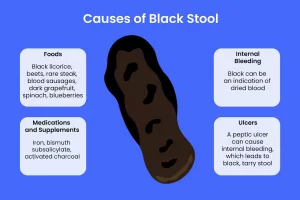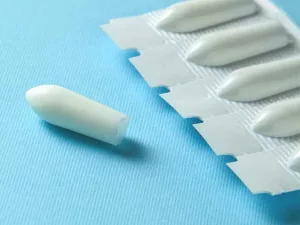Have you ever pondered the question of whether not pooping after surgery is a cause for concern? If you’re saying yes to the previous sentence, you’re not alone. Whether it’s you or the one you love recovery after an operation, constipation is one of those things that will mess up your day and leave you with an uncomfortable feeling. It’s not a comfortable thing to face, it’s frustrating, and it’s safe to say that it’s not the topic of discussion at the dinner table. But don’t worry because I am your fairy godmother. Here, we are going to provide all the necessary answers to the topic of constipation after surgery. The articles are from the reasons, how to and most importantly, when to start being concerned.
Can I walk in and present you with a little narration right now? Natalie had undergone surgery on her knee, some time ago. The operation was a success, but a few days later she called me with a mild panic. “It’s been three days, and I haven’t pooped since before they wheeled me into the OR,” she said. She was bloated, uncomfortable, and getting concerned as to whether there is something very seriously wrong with her. I suggested her to take a deep breath and I assured her that she shouldn’t worry because constipation after the operation is quite common. She said that her doctor had even warned about the possibility of it happening. She only needed slight changes like drinking more water and having some prunes, and she felt completely fine again in no time. As for Natalie, that was only her story and I say this to you—if you rely on me, I will accompany you through this, so you are not scared but well informed.
Get a warm cup of tea down your throat (or a bottle of prune juice, maybe), and let’s get to the bottom of this: What happens to your body after surgery, how do you relieve the situation, and when the time is right to dial your doctor.
Is My Constipation Normal After Surgery?

First things first: Is it normal to be constipated after surgery? In most cases, yes—it’s totally expected. Studies show that up to 30% of people experience constipation after a surgical procedure, especially if it involves anesthesia or pain meds. Your body’s been through a lot, and your digestive system is just taking a little breather. But how long is too long? Let’s break it down.
Most surgeries cause a patient to have periods of 2-5 days when they only have a bowel movement. For example, after interventions such as a C-section, appendectomy, or any other kind of gut issue, it might take closer to a week. Imagine if you have pulled the plug on your computer to reboot it and it remained in that state. The intestines are still in learning the process of resuming their function after the pause. Well, if on days three or four there are still no results, then it is not time to panic just yet.
That said, everyone’s different. Things like your age, the type of surgery, and your usual bathroom habits play a role. If you’re older or have a history of sluggish bowels (looking at you, IBS sufferers), it might take a bit longer. Same goes if you had a major procedure versus something smaller, like getting your wisdom teeth out. The key here is to know what’s typical for you and your situation. When in doubt, your surgeon or doctor can give you a heads-up on what to expect based on your recovery plan.
Here’s the bottom line: constipation after surgery is usually no big deal. But if you’re feeling unsure, it never hurts to check in with your healthcare team. They’re there to help you navigate this stuff!
Why Does Constipation Happen After Surgery?
Okay, so we’ve established that constipation after surgery is pretty common. But why does it happen? There’s no single answer—it’s more like a perfect storm of factors that slow your system down. Let’s dig into the main culprits so you can see what’s going on behind the scenes.
Anesthesia puts your gut to sleep. When you’re under general anesthesia, it’s not just your brain that checks out—your whole body, including your intestines, takes a timeout. Anesthesia relaxes the muscles in your digestive tract, slowing down the natural rhythm that moves food (and waste) along. It can take a day or two—or sometimes longer—for your gut to wake up and get back to business.
Pain meds are a constipation classic. If you’re taking painkillers after surgery (think opioids like oxycodone or hydrocodone), they’re probably a big reason you’re not pooping. These meds are awesome for keeping you comfortable, but they’re notorious for hitting the brakes on your bowels. Research shows that 40-95% of people on opioids deal with constipation. It’s so common that doctors often warn you about it upfront.
You’re not exactly running marathons. Let’s face it—after surgery, you’re likely parked on the couch or in bed, resting up. That lack of movement doesn’t do your digestion any favors. Physical activity helps stimulate your intestines, so when you’re sedentary, things can stall out. Even if you’re not up for a workout, a slow shuffle around the house can nudge your system along.
Your diet’s taken a hit. Before surgery, you probably had to fast—no food, no water, nada. After surgery, you might not feel hungry, or you’re stuck with bland hospital meals that aren’t exactly loaded with fiber. Without enough food (especially the fibrous kind), your body doesn’t have much to work with to make stool. It’s like trying to run a car on fumes.
Put all these together—anesthesia, pain meds, less movement, and a wonky diet—and it’s no surprise your bowels are on strike. Understanding this can take some of the mystery (and worry) out of the equation. Plus, it points us to some practical ways to get things moving again, which we’ll cover next.
How to Manage Constipation After Surgery

Now that we know why your bowels are being stubborn, let’s talk about what you can do about it. The good news? You don’t have to just sit there and wait it out. There are some simple, effective ways to manage constipation after surgery and get relief. Here’s your game plan.
Step 1: Hydrate like it’s your job. Water is your best friend right now. It softens your stool and makes it easier to pass, which is clutch when your system’s sluggish. Aim for at least 8 glasses a day—more if you can swing it. Warm liquids like herbal tea or even a splash of prune juice can work wonders too. Skip the coffee or soda for now, though; they can dehydrate you and make things worse.
Step 2: Load up on fiber (gently). Once your doctor says it’s okay to eat, bring on the fiber-rich foods. Prunes are the MVP here—seriously, they’re like nature’s laxative. Apples with the skin on, broccoli, spinach, and oatmeal are great picks too. Just don’t go overboard too fast. Piling on fiber when your gut’s still waking up can lead to bloating or gas, and nobody wants that post-surgery. Start slow and build up.
Here’s a quick cheat sheet of fiber heroes to try:
- Prunes or prune juice (start with a small glass)
- Apples (keep the peel for extra fiber)
- Broccoli (steamed is easier on your stomach)
- Spinach (raw or cooked, your call)
- Oatmeal or whole-grain toast
Step 3: Move a little, if you can. I get it—after surgery, you’re not exactly itching to hit the gym. But even a tiny bit of movement can kickstart your digestion. If your doctor gives the thumbs-up, try a short walk around your living room or some gentle stretches. It doesn’t have to be much—just enough to remind your intestines they’ve got a job to do.
Step 4: Consider a helping hand. If hydration, food, and movement aren’t cutting it, an over-the-counter remedy might be worth a shot. Stool softeners like docusate are gentle and can ease things along without forcing anything. Mild laxatives like Miralax might help too. But—and this is a big but—check with your doctor first. Some meds can interact with your recovery or surgery type, so don’t wing it.
One more tip: Be patient. Your body’s healing, and it might take a few days for these tricks to work. If you’re still stuck after trying this stuff, give your healthcare provider a shout. They can tweak the plan or suggest something stronger if needed.
When to Worry About Constipation After Surgery

Alright, we’ve covered the “why” and the “how,” but here’s the million-dollar question: when should you worry about constipation after surgery? Most of the time, it’s just an annoying speed bump on your road to recovery. But there are moments when it’s a sign of something more serious. Let’s go over the red flags so you know when to act.
Watch out for these warning signs:
- No poop after 5 days: If you’re past the 5-day mark with no action—and especially if you’re feeling off—it’s time to call your doctor. This is doubly true if you’ve had abdominal surgery.
- Bad belly pain: A little discomfort is par for the course, but sharp, intense, or worsening pain isn’t. It could mean a blockage or something else that needs checking out.
- Vomiting: Throwing up, especially with pain or no poop, is a big deal. Don’t wait—get help ASAP.
- Fever: A temp spike after surgery could signal an infection or complication. Pair it with constipation, and it’s worth a trip to the doc.
- Can’t pass gas: If you’re not even farting, it might mean your intestines are blocked. That’s not something to ignore.
- Blood in your stool: Any sign of blood—bright red or dark—means you need to talk to your doctor, stat.
If any of these pop up, don’t brush them off. Call your doctor or head to urgent care. They might do a quick exam, ask about your symptoms, or order an X-ray to rule out trouble like a bowel obstruction. Most of the time, it’s not that dramatic—maybe you just need a stronger laxative or a tweak to your meds. But better safe than sorry, right?
For peace of mind, keep an eye on how you’re feeling day to day. Jot down when you last pooped (or tried to) and any weird symptoms. It’ll make it easier to spot if something’s off and give your doctor the full picture if you need to chat.
Wrapping It Up: You’ve Got This
The experience of being constipated after surgery may not be enjoyable but in most cases, it is nothing more than a temporary hurdle. With essential information in hand, you will be able to manage it with the efficiency similar to that of a pro. Drinking more water, eating several prunes, taking a light walk, and then, allowing recovery time for your body will bring back the normal bowel movement. Besides, if it’s been more than 5 days or you’re observing caution flags, do not hesitate to bring the matter to the attention of your doctor. The professionals at the doctor’s office are experienced and can easily take you through it step by step.
Recovery’s a journey, and your bowels are along for the ride. Be kind to yourself as you heal, and trust that you’ll be back to your regular self soon. Loved this deep dive? Stick around for more health tips on the blog, or drop us a line if you’ve got questions. Here’s to smooth sailing—and smooth pooping—ahead!

























Leave a Reply
You must be logged in to post a comment.